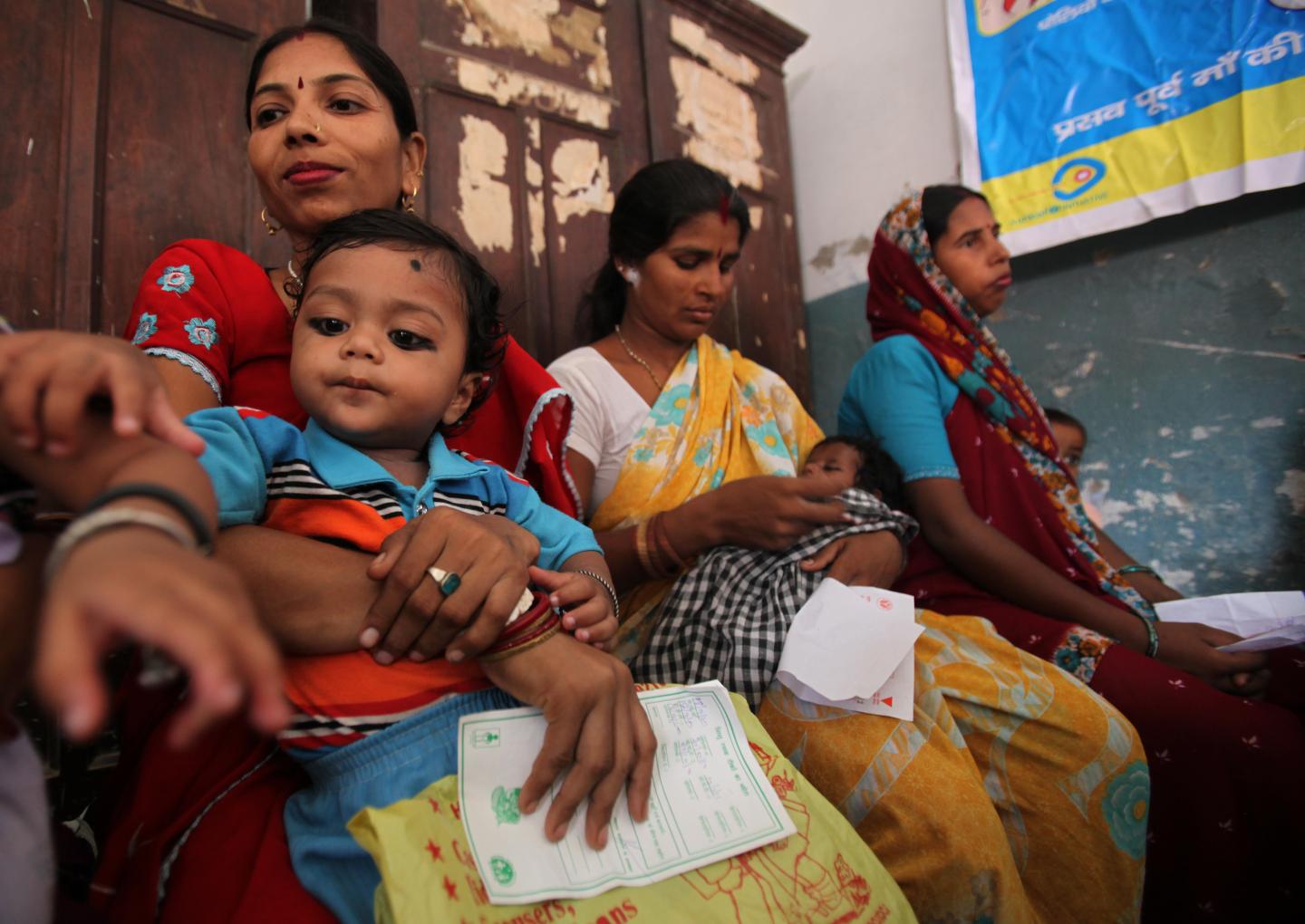Researchers have provided the first insight on the impact of mass vaccination campaigns in India, introduced in 2010

Credit: SEAR/A. Cabellero-Reynolds
A mass measles vaccination campaign saved tens of thousands of children’s lives in India between 2010 and 2013, according to a report published today in eLife.
The findings suggest that eliminating deaths from measles in India could be possible, although it will require continued diligence to ensure high immunization rates among Indian children and direct mortality monitoring. The results may also help to encourage greater uptake of vaccinations in children across the world.
There have been substantial decreases in the number of deaths from measles over the last 30 years. However, the infection remains a significant cause of mortality in children under five years old globally, with much of the burden of mortality and transmission residing in Africa and Asia.
India was one of the last countries to adopt two doses of the measles vaccine as part of national immunization programs. In 2010, its government implemented second-dose measles vaccines alongside mass immunization campaigns in districts (small administrative areas, each comprising about two million people) with low child vaccination rates.
“We know that measles deaths have declined in India, but what we did not know prior to this study is if the national measles campaign reduced child mortality rates,” explains first author Benjamin Wong, Epidemiologist at St. Michael’s Hospital and the University of Toronto in Canada. “Until now, no studies had directly answered this question due to gaps in the available data.”
Wong and his team applied a novel statistical method to data from the Million Death Study (MDS) – a nationally representative sample of all deaths in India, which includes detailed interviews with families about child deaths. They examined 27,000 child deaths from 1.3 million households surveyed from 2005 to 2013. During this period, the MDS captured deaths for 13,490 girls and 13,007 boys aged between one and 59 months old.
The current analysis suggests that the measles vaccine campaigns saved 41,000 to 56,000 children in India during 2010 to 2013, or 39%-57% of the expected number of deaths nationally. Mortality in children aged between one and 59 months fell more in the campaign states following launch (27%) than in the non-campaign states (11%). Measles mortality risk was notably lower for children living in the campaign districts and those born between 2010-2013.
The team also found that the campaign was particularly successful for girls, as there was a steeper decline in the mortality rates of girls than boys in the vaccination campaign states during the three-year period. But while this highlights a narrower gap between girls and boys, mortality rates remain higher for girls. This is possibly due to lower vaccination coverage, a social preference for boys and/or lower levels of breastfeeding and healthcare access.
“Together, our results demonstrate the significant success of the measles vaccination campaigns in saving children’s lives in India,” concludes senior author Prabhat Jha, University of Toronto Chair in Global Health and Epidemiology, and Executive Director of the Centre for Global Health Research at St. Michael’s Hospital. “We’ve shown that nationwide mortality studies that are representative of the population are an inexpensive and practical way to directly investigate the impact of interventions for other diseases in India and elsewhere.”
###
References
The paper ‘The impact of measles immunization campaigns in India using a nationally representative sample of 27,000 child deaths’ can be freely accessed online at https:/
This is the first in a series of papers on avoidable mortality in India to be published in eLife. Contents, including text, figures and data, are free to reuse under a CC BY 4.0 license.
For more information about the Centre for Global Health Research, visit http://www.
Media contacts
Emily Packer, Senior Press Officer
eLife
[email protected]
01223 855373
Michael Oliveira, Media Relations Advisor
St. Michael’s
[email protected]
416-864-5047
About eLife
eLife aims to help scientists accelerate discovery by operating a platform for research communication that encourages and recognises the most responsible behaviours in science. We publish important research in all areas of the life and biomedical sciences, including Epidemiology and Global Health, which is selected and evaluated by working scientists and made freely available online without delay. eLife also invests in innovation through open-source tool development to accelerate research communication and discovery. Our work is guided by the communities we serve. eLife is supported by the Howard Hughes Medical Institute, the Max Planck Society, the Wellcome Trust and the Knut and Alice Wallenberg Foundation. Learn more at https:/
Media Contact
Emily Packer
[email protected]
Original Source
https:/
Related Journal Article
http://dx.




